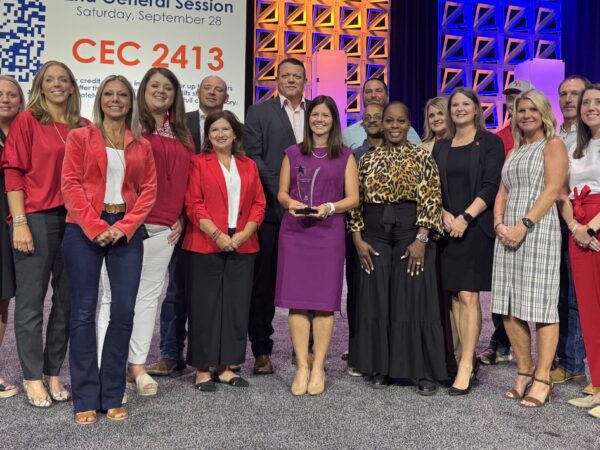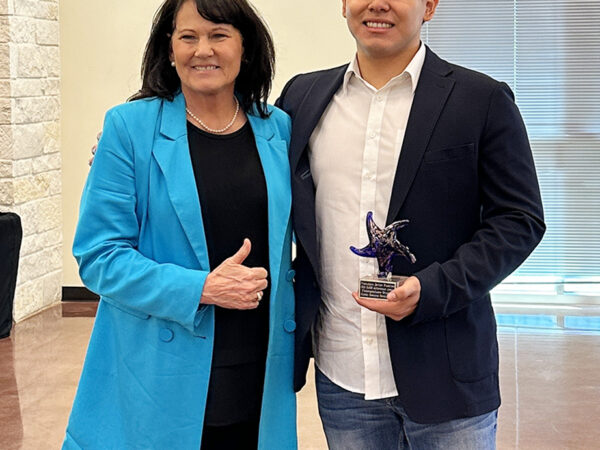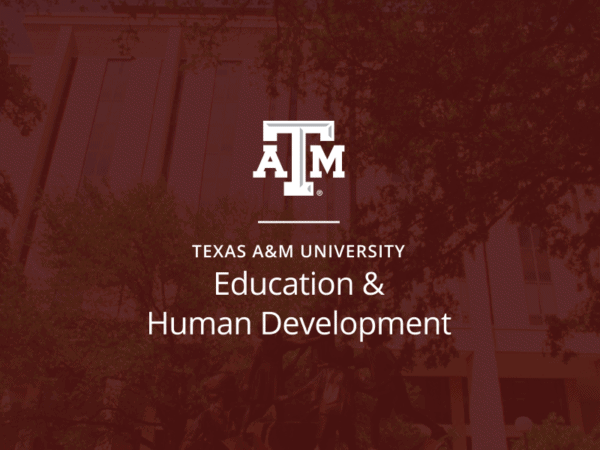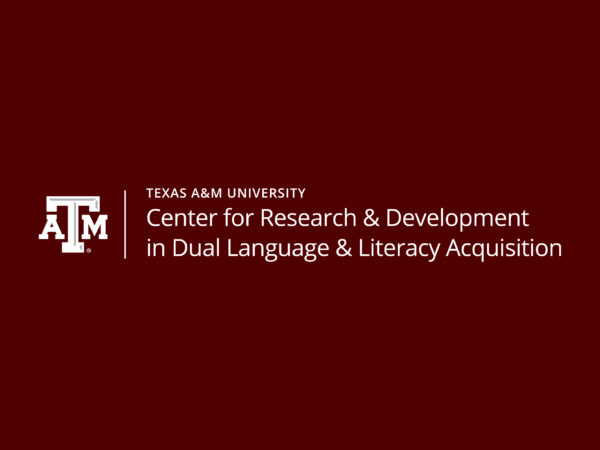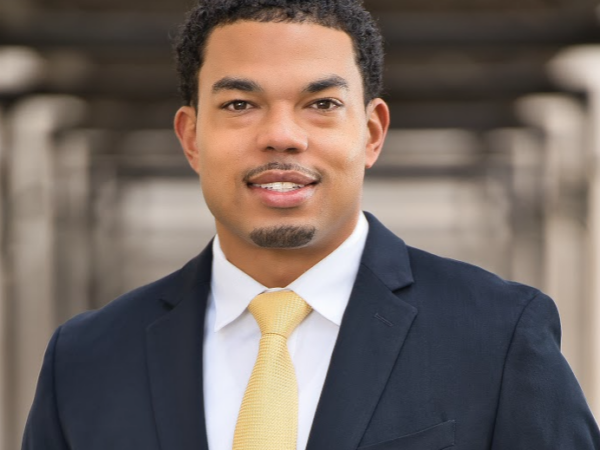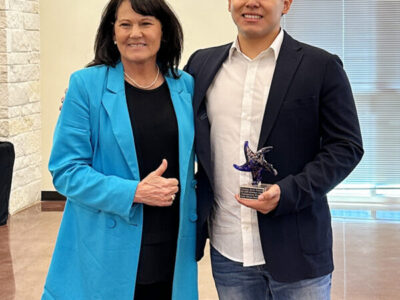Dr. Christine Stanley’s Passion For Diversity And Inclusion
For Dr. Christine Stanley, a passion for diversity and inclusion stems not just from her upbringing in the Caribbean but also from many other spheres of influence, including her parents, grandparents and the surrounding community. That passion is what fueled her commitment to effecting change over the course of her career.
Dr. Stanley has held several senior level administrative positions in academia and leadership roles in national professional organizations in higher education. She has also been awarded prestigious honors, including the 2015 Mildred Garcia Award for Exemplary Scholarship from the Association for the Study of Higher Education (ASHE) and, most recently, the Professional and Organizational Development (POD) Network in Higher Education’s inaugural award created in her name.
“I’m still in shock that they did this. I’m not sure I can find the words. I’m so humbled. It’s just incredible to me that the first organization I got so involved in at a professional level would choose to honor me in this way,” said Dr. Stanley, of the POD award. “Sometimes you can advocate and be passionate about something you believe in but you’re not always quite sure if it’s having an impact or not.”
As noted on the POD website, the Christine A. Stanley Award for Diversity and Inclusion Research in Educational Development seeks to honor individuals who, like Dr. Stanley, demonstrate unequivocal commitment to advancing research on diversity and inclusion issues in educational development.
The website further notes that the purpose of the award is threefold: 1) to raise the awareness of and advance theory about diversity and inclusion-related issues in educational development, 2) to contribute to increased understanding of best practices on diversity and inclusion-related issues in educational development, and 3) to recognize how POD’s values of diversity and inclusion are reflected in the everyday practice of educational development.
As Dr. Stanley notes, the award “is about advocating for research on diversity and inclusion but also using that research to influence change in teaching and learning and ultimately impact change in terms of how our universities operate.”
Career Trajectory and Impact
Dr. Stanley immigrated to the United States from Jamaica, The West Indies, in 1980. Her first stop was Prairie View A&M University. Planning a career in medicine, she completed her bachelor’s degree with honors in biology. Her next stop was Texas A&M University, in College Station, where she pursued a master’s degree in zoology.
Near the end of her master’s degree work, Dr. Stanley’s career plans changed. During a visit with her major professor in biology in which she spoke about her love for research and teaching, her professor suggested that she pursue a Ph.D. in the College of Education and Human Development.
“He could tell that I was really enjoying my work as a graduate teaching assistant and how students responded to me in class as well as the lab. He was very affirming and supportive.”
That discussion led her to change course from her initial plans for a medical career to a career in higher education administration, with a focus on curriculum and instruction.
While working on her dissertation, Dr. Stanley was asked by emeritus professor, Dr. Glenn Ross Johnson, Founding Director of the TAMU Center for Teaching Excellence, to join the Center in an assistantship capacity. She was later hired to stay on as an instructional specialist. Dr. Stanley’s connections with the Center led her to join and become actively involved in the Professional and Organizational Development Network in Higher Education (POD). Through her involvement, she developed collegial relationships with several colleagues, many of whom became her mentors.
Dr. Stanley’s involvement with the POD Network continued as her professional interests took her, in 1990, to Ohio State University. She began working with the Center for Teaching Excellence and became immersed in faculty professional development. While engaging with faculty around teaching, learning and curriculum development, she heard stories from numerous faculty members, particularly women and faculty who were African-American, Asian, Latina/o, LGBTQ and Muslim, about their experiences in as well as outside the classroom. These experiences fueled a research interest in exploring the relationship between diversity and inclusion and teaching and learning.
“They were telling me about specific experiences in the classroom and asking if other faculty members were experiencing the same things,” explained Dr. Stanley. “For example, several of the faculty shared instances where they were teaching a course and experienced students challenging their credibility and authority, or focusing in their evaluations on things that had nothing to do with the course, such as how the faculty member was attired. Students’ resistance to learning about social and cultural issues that related to the learning outcome goals of the course were also shared.”
Those discussions led Dr. Stanley to take a more active role in the POD, advocating for the organization to pay more attention to diversity and inclusion and also use research to bring about deeper cultural, instructional, and organizational change in colleges and universities. From 1993-1999, Dr. Stanley chaired the Diversity Committee of the POD and in 2000-2001 she served as president of the organization.
Returning to Texas A&M in 1999 as an assistant professor in higher education administration, Dr. Stanley also served as an Associate Director of the Center for Teaching Excellence, and produced two major scholarly works on diversity and inclusion. The first, which appeared in 2006, was an edited volume, Faculty of Color Teaching in Predominantly White Colleges and Universities. The second, in 2007, was an article, “Coloring the Academic Landscape: Faculty of Color Breaking the Silence in Predominantly White Colleges and Universities,” which appeared in the American Educational Research Journal.
During her tenure at Texas A&M, where she is currently a full professor, Dr. Stanley has served in a variety of key leadership roles, including Associate Dean of Faculties, Associate Department Head, Executive Associate Dean of the College of Education and Human Development, Acting Vice Provost and, since 2009, Vice President and Associate Provost for Diversity.
In her current role, Dr. Stanley is responsible for planning and implementing diversity and inclusion programs at the university as well as monitoring the efforts and progress in diversifying the faculty, staff and student body. She also works with the President and Provost to hold units accountable for progress in implementing the goals of the University Diversity Plan, established in 2010, and promoting a supportive climate for all members of the university community.
“Diversity and inclusion are synonymous with excellence. My goal is to get Texas A&M to be a leader in this area, and live up to its mission of a public land-grant research university that values diversity and inclusion. I think I’ll know when we get there when our campus is welcoming to everyone and everyone feels a sense of belonging here and nobody feels excluded however they choose to self-identify as a human being.”
Note: For guidelines on submitting an application for this award, please see http://podnetwork.org/the-christine-a-stanley-award-for-diversity-and-inclusion-research-in-educational-development/
About the Writer
Ashley is the Media Relations Coordinator and responsible for news coverage in the Department of Teaching, Learning and Culture as well as the Department of Educational Psychology.
Articles by AshleyFor media inquiries, contact Ashley Green.
Fundraising
To learn more about how you can assist in fundraising, contact Amy Hurley, Director of Development ahurley@txamfoundation.com or 979-847-9455



